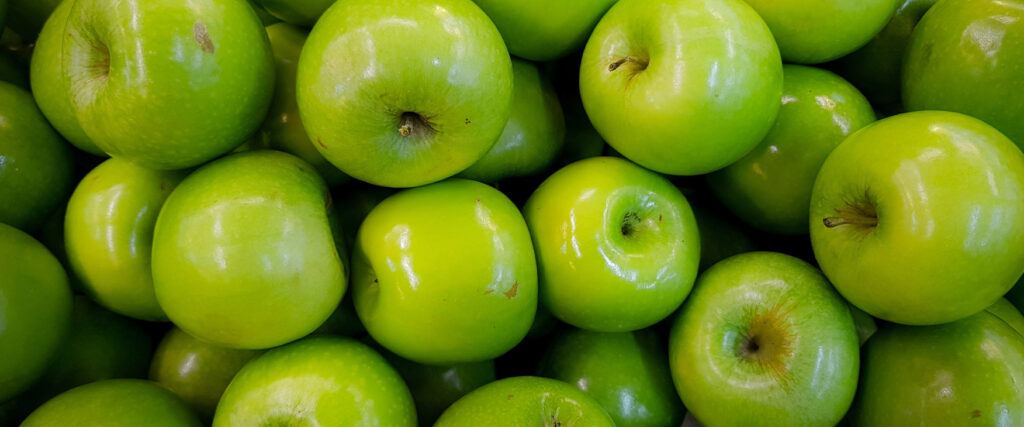Overview
Understand the impact of nutrition on sport and exercise performance
This course focuses on the role of nutrition in the optimisation of sport and exercise performance.
It is aimed at those who have already developed an interest in sport or exercise nutrition and wish to further their knowledge practical skills in this area of study. The course provides students with opportunity to develop in applied practice and research roles, providing the foundation for a broad range of employment opportunities.
With well-established courses across a range of sport and exercise disciplines, we have the facilities and expertise to enable masters students to gain a great insight into both the theoretical underpinnings and the practical application of nutrition in the sport and exercise context.
This course also includes a placement module where students can apply their skills in a professional setting to gain experience to improve future employment opportunities.
Prepare for SENr registration
This course has been designed to fulfil the Sport and Exercise Nutrition register (SENr) Graduate Competency Framework.
Successful completion of the taught portion of the programme makes you eligible to apply for entry to the SENr as a graduate member and will have attained many of the competencies necessary to achieve full registration with the SENr.



The Course
Gain a great insight into both the theoretical underpinnings and the practical application of nutrition in the sport and exercise context
You will consider the complexity of the impact of nutrition on sport and exercise performance through a detailed understanding of the many components required.
These connections have been developed from extensive research, which provides the basis for the systematic application of nutritional strategies aimed at optimising performance. You will learn to understand these applications, how they can be implemented and their effects on those who participate in sport.
Applied Sports and Exercise Nutrition
To work in Sports and Exercise Nutrition, it is important for you to have a critical knowledge of nutrition theory, but equally to be able to critically dissect the relevance of published academic texts and be able to apply this to the individual in a broad range of settings and contexts. This module aims to give you the core competencies needed to work with and add value to a broad range of competitive or recreational athletes requiring nutritional support for performance and/or recovery.
Applied Techniques in Exercise Physiology and Nutrition
This is a hands-on module that advances the skills required to undertake physiological assessments linked to client population requirements.
Muscle Physiology for Sport Exercise and Nutrition
An understanding of the role of skeletal muscles for whole-body physiological functioning exercise is essential when examining the impact of nutrition and physical training for sports for performance.
This module develops critical knowledge of muscle function and energy demands, the use of carbohydrate, lipids and proteins as energy sources, the metabolic pathways, the nature of metabolic limitations in skeletal muscles during exercise, the role of nutrition and ergogenic aids (e.g. polyphenols, carbohydrates, beta-alanine, creatine) for optimal function of skeletal muscles during exercise, the role of proteins for muscle mass and the relationships between nutritional interventions, signalling pathways and training adaptations in skeletal muscle.
The application of this knowledge to athletic training and sport with divergent exercise intensity and exercise demands will be discussed within both theoretical and practical contexts.
Professional Skills in Sport and Exercise Physiology & Nutrition
This module develops your knowledge base associated with applied physiological and nutritional support in a range of different environments including exercise testing, physiological and dietary measurement, food safety and hygiene and UK Anti-Doping (UKAD) considerations.
Specifically, the module will address the interplay between external physical challenges associated with different environments; internal physiological and metabolic challenges associated with gender, training status and various states of disease-impaired or compromised function such as musculoskeletal injuries.
Whilst the module gives due consideration to elite sports performance and recreational exercise participation, the module also discusses exercise and physical performance in occupational settings such as the military and emergency services.
A focus of the module is to critically discuss how sport and exercise scientists working in interdisciplinary teams can enhance performance, protection and promote safety and wellbeing.
Research Methods for Health and Performance
During this module you will learn and apply innovative and cutting-edge methods of analysis evident in physiotherapy literature.
Supervised Experience Portfolio
This module provides you with the opportunity to plan, implement and evaluate discipline-specific sport and/or exercise science support within a real-life setting. You will gain insight into applied sport and exercise science, and prepare for the type of reflective and academically-grounded experience that is a central demand of candidates seeking Support Accreditation via BASES. The module has been designed to provide the opportunity for you to learn and develop in a real-world setting whilst having access to identified support and training mechanisms.
The Research Dissertation
This module is the culmination of previous learning and is the major element of your independent enquiry on your programme. The module requires that you reflect on, and utilise the knowledge base, context, and application of taught modules, as well as placement experiences. It is designed to encourage you to generate and explore your own ‘problem’ assisted by supervision from a tutor.
Work Placement in Sport and Exercise Nutrition
This provides the opportunity to put theory into practice and develop key transferable skills such as teamwork, communication, task deadline accomplishment, working under pressure and professional work ethic.
Experience
Discover a wide range of excellent sporting facilities that support your learning
Sports laboratories
We have four specialist sports labs including a virtual reality reader, brain imaging unit and an observation suite.
Sports injury clinic
Students use our specialist injury clinics these spaces for practical sessions and run a practice.
Tudor Hale Centre for Sport
Our world-class Tudor Hale Centre for Sport acts as the focus for sports science, therapy and physiology.
Sports hall
Our specialist sports hall can be used for a wide range of indoor sports, including basketball, netball, badminton and volleyball.
Specialist outdoor sports pitches
Alongside our grass football and rugby pitches, we also have our International Hockey Federation compliant floodlit astro turf.
Close community
Our commitment to a friendly and close-knit student community contributes to a high degree of success for our graduates.
Expert staff
Learn from experienced biomechanics and sports science specialists here to support you throughout your degree.
Fitness suite
We offer a variety of cardio, resistance and weight equipment, with a dedicated strength and conditioning room.
Sports Dome
The Sports Dome is a large indoor facility which can be used for sports such as cricket, football, hockey and many more.
FA Women's High-Performance Football Centre
As one of only nine centres in the UK, we provide additional opportunities for women to develop as players and coaches.
Learning Resource Centre
The Learning Resource Centre (LRC) contains the library, a café, IT/teaching rooms and the Support and Information Zone (SIZ).
Library
Our campus library holds more than 200,000 books and over 500,000 eBooks.
Subject specific librarians
If you have difficulty finding material for an essay, seminar or project, subject librarians will be happy to provide assistance.
Teaching and Assessment
Innovative teaching methods that focus on practice
Teaching
Our team of lecturers ensure innovation, enthusiasm and expertise combine to deliver the excellent standards that give our institution its high reputation.
When you come to Chichester, you will join a community of students and lecturers working in partnership to ensure that your learning experience reflects best practice and embraces the opportunities presented by new, interactive technologies.
The course team has ensured that this course is characterised by an appropriate breadth and depth of content that includes the latest research and a variety of teaching, learning and assessment methods. The teaching and learning methods used in the course reflect the wide variety of topics and techniques associated with sport and exercise nutrition.
Learning and teaching methods include:
- Lectures and seminars led by academic staff or guest lectures
- Laboratory classes for learning and practising techniques
- Workshops for teaching a range of skills including research methods
- Seminars investigating specific topics including case studies.
Assessment
Our course includes a mix of assessments so that you may develop a wide range of transferable skills. Modules are assessed at every stage of the course, offering cumulative assessment of your progress.
All modules will include formative assessment. Formative assessment comprises feedback on your performance designed to help you learn more effectively and find ways to maintain and improve your progress. It does not contribute to the final mark, grade or class of degree awarded to you.
Indicative methods of assessment:
- Individual and group work
- Written report
- Oral and poster presentations
- Practical skills assessment
- Written examination
- Research project dissertation.
- To gain a Postgraduate Certificate in Applied Sport and Exercise Nutrition, you need to complete three modules. Each module is assessed by a 4,000-word assignment.
- To gain a Postgraduate Diploma in Applied Sport and Exercise Nutrition, you need to complete six modules. Each module is assessed by a 4,000-word assignment.
- To gain an MSc in Applied Sport and Exercise Nutrition, you need to complete six modules, and a dissertation of 12,000 words or a supervised experience portfolio.
Careers
Acquire the skills and knowledge required to enter professional practice
The programme is designed to provide students with the knowledge and skills that will enable them to enter professional practice in sport and exercise nutrition.
The course structure blends theoretical, empirical, practice and research-based learning with a view to meeting the needs of prospective clients and employers.
Graduating students typically find employment in nutrition research, nutritional consultancy, health claim substantiation, education or health promotion.
Students are encouraged to engage with the Sport and Exercise Nutrition Register (SENr), The Chartered Association of Sport and Exercise Sciences (CASES) and Nutrition Society throughout the course and for future career development.
Course Costs
Course Fees 2026/27
UK fee
International fee
For further details about fees, please see our Tuition Fees page.
For further details about international scholarships, please see our Scholarships page.
University of Chichester alumni who have completed a full undergraduate degree at the University will receive a 15% discount on their postgraduate fees.
To find out about any additional costs on this course, please see our Additional Costs page.
Entry Requirements
- At least a first or upper second class honours degree in a related scientific subject from a recognised institution of higher education.
- Students with a lower second class award may be accepted if they can provide a transcript to show that they performed near the upper second class level on appropriate modules.
- If a student does not have these academic qualifications, they could still be offered a place on this course if they can show evidence of the potential to succeed based on professional and/or related experiences.
- You will also be required to attend an interview.
If English is not your first language then English language proficiency required is IELTS 6.5 (with no element less than 5.5) – or equivalent qualification
International students who don't meet the entry requirements
If you are an international student and do not yet meet the entry criteria for this course, you may be eligible for our International Premaster’s Programme. This is a one-semester programme that allows you to progress onto a master’s course at the University of Chichester.



